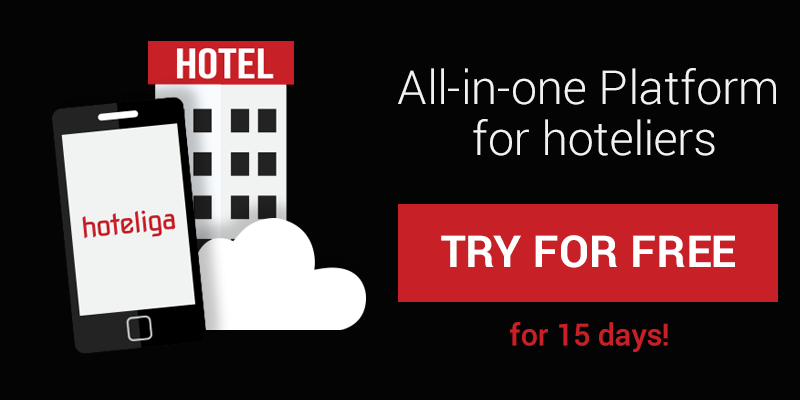
5 Most Common Fields of Mistakes in Hotel Management
Imagine it's summer. Your hotel is ready for a fantastic season. Your rooms are beautiful, shiny, and eager to welcome new guests. You know that your region is a popular tourist destination, and you expect the bookings to fly in by themselves …. But they don't. It has happened to many managers at some point in their careers – but why does it happen?
In this post, we'll cover the five most relevant areas where hotel managers make mistakes, but should not to run a profitable business. These include your team and team building, revenue management, guest experience, website, and understanding your offer from a customer's point of view. Without further ado, let's dig in!
No team-building
Developing a relationship with team members is a key factor in managing. Getting to know employees can make a manager more responsive to employee needs and moods. Managers have to achieve a balance that allows them to lead employees without destroying employee empowerment. When things go wrong, managers should be the ones to take responsibility.
Your team and yourself have the power to make your guests' stay truly memorable. The process starts with hiring. You need to have people with strong personality and character that fits your brand's style. Once your team is complete, you need to make sure it runs like a single unit. Hold team meetings, track team performance, and read them the online reviews. Let them know they have the capability to influence the guests' stay to a higher degree than they imagine! Make them feel a more integral part of the overall organization. Ask them for feedback, and this way makes them feel that you value them and consequently create a higher level of loyalty. Involve other team members in your decision-making process so that you build a sense of community and democracy. Emphasize how your team's work will contribute to overall success!
Poor Revenue Management
Considering discounting rates as an effective way of increasing revenue, not having a strong distribution plan, not collecting reviews and feedback, following the competitors' prices … these are just some common mistakes when it comes to revenue management.
While discounted rates can help increase the occupancy, the hotels offering low rates are likely to lose the long-term battle against the competitors. Hotels that set low prices will have a hard time to comeback with higher rates because they may already be perceived by clients as low valued or low-quality hotels.
Moreover, you need to have a clear distribution plan that tells you which channels are most beneficial for your cash flow and then it is up to you to support these channels the most. OTAs can help contribute valuable revenue if properly managed.
Managing the performance and efficiency of your daily operations is a difficult task. To be able to manage revenue well, you need a strong hotel management system to support your needs, streamline the workflow that comes with managing property, and save you time while increasing your revenue. The solution from hoteliga includes interactive reservation calendar, revenue control, selection of reports, loyalty management and more. Try it out!
You are providing a room instead of an experience
Clean bed and wifi used to be enough to nail a positive review from a guest. Nowadays, however, you need to stand out and be able to create an emotional attachment to your brand. There are hundreds or thousands of options out there, and if you cannot offer your client something worth talking about, why would they stay at your hotel? In the modern era where the reservations are dictated by online reviews, you have the opportunity to create a strong social spirit and vibe that will appeal to the modern day traveller.
You need to be flexible, social and create a personalised experience for each of your guests in order to stay relevant. Service orientation is key - it means going out of your way to match the customer's needs, make yourself available at all times, and monitor guests' satisfaction. Furthermore, you have to take personal responsibility for anything that happens before, during, or after your guest's stay.
Set the positive atmosphere by communicating with your guests before they arrive. Try to establish their likes, dislikes, and preferences. While a smooth and fast check-in is a must, do not forget to add a personal touch, such as playing their favourite song in their room or treating them to fresh cookies or fruit. The relationship between the guest and the staff must be warm and personal at all times.
Poor Website
Travellers will want to know what the rooms look like before they book. Make sure to provide many authentic photos of the accommodation. Avoid stock photos at all costs! Your home page must echo the same vibe as your true experience, and if use you use old stock photos, you are surely not doing your brand any favour.
Even if you provide amazing photos, some people will still feel uncomfortable purchasing and reserve holidays online. Therefore, you should include reviews of your hotel on your site. Your customers trust their peers more than their trust your communication. Reviews are crucial to show that your hotel can be trusted, and can be used to showcase the extraordinary experience you offer. To learn how to encourage reviews, read one of our previous posts!
Moreover, be sure that you have optimized your website for search engines, and that your website loads fast! A slow website will almost definitely turn customers away. It’s important to have images, but if your site is too graphic-heavy, it can increase your load time. Make sure images are compressed and optimised for the best look and appropriate load times.
Another mistake many hotel managers make is to forget about a call to action. The purpose of your site is to encourage customers to enquire about your hotel and ultimately make a booking through your website. If you provide wonderful photos and a lot of informative content but do not include a call to action leading your visitor to book or enquire – what's the point?
Don't forget: users don't read your home page. They scroll through it and look for the information that's most relevant to them. If they can't find it quickly and with minimal effort, they'll visit another site. Make sure the way to the final reservation page is as quick and smooth as possible for your new guest!
Not putting yourself in the customer's shoes
Many hotels fail to look at their service from the customer’s point of view. Don't forget that this is the only point of view that truly matters!
Analyse your processes and find out how they can better suit your guests' needs. People are unique, situations are different, and emotions often come into play. For instance, if none of your guests come to have breakfast on the weekend, you may be ending the service too soon. Moreover, if your check-in process is inefficient and demands too much unnecessary paperwork, you’ll have to refine your processes with your staff to make the experience smoother and more pleasant. It is a well-known trap to stick to certain processes just because you have been doing them for ages. It is necessary to adapt to your guests' ever-changing needs. But to do so, you need to know how they experience staying at your hotel!
If you want loyalty, you should look at the customer experience holistically and identify any gaps (such as payment issues, poor customer support, dirty rooms etc.) and aim to remove them.
Thank you for reading our post where we have examined the key areas where hotel managers tend to fail. Make sure to avoid such mistakes and come up with an extraordinary experience that will make your guests eager to return to your hotel.














